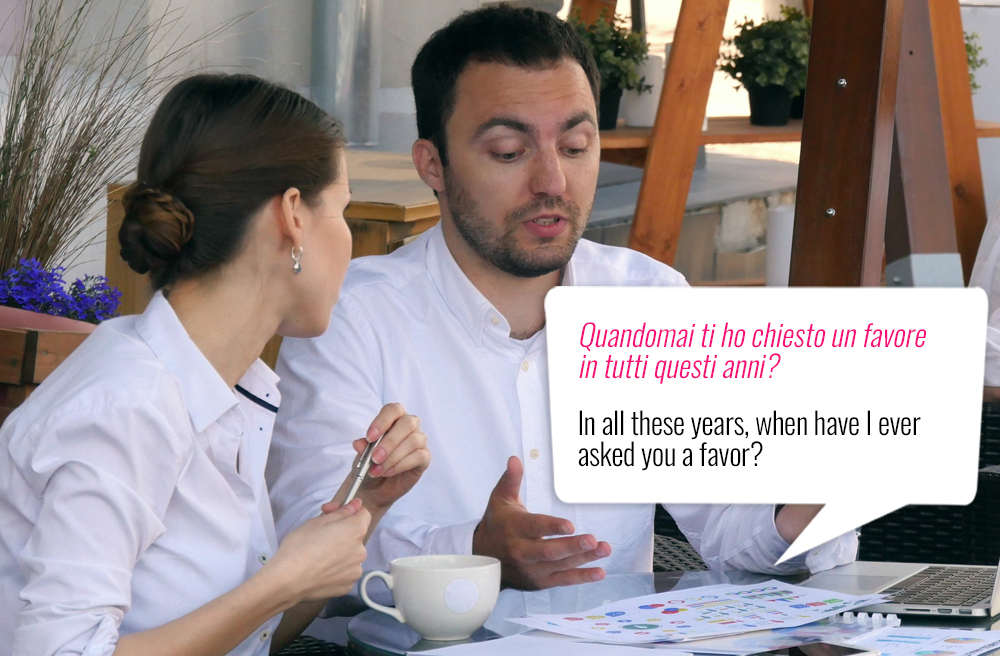Our special word this week is a tricky one because it can truly be interpreted in a million ways. Quandomai – or quando mai, as an adverbial locution– (koo-ahn-doh mah-ee) is formed by two separate time adverbs, quando (when) and mai (ever).
We use it commonly, in all registers and, indeed, in a variety of occasions, because quandomai can indicate surprise or incredulity, but also feign disapproval and, sometimes, a whole lot of rhetorical flair.
For instance, when you want to show you can’t believe something happened, and how surprised you are, you’d say, Quandomai può succedere qualcosa così!? (“When, if ever, can something like that happen?!”), which means what you’re talking about is so incredible you can’t believe it happened.

But you can also use quandomai to show you don’t approve of something, or that you don’t agree with it: Quandomai si mette la panna nella carbonara! (“But when ever would you put cream in carbonara!”), a phrase every Italian in the world is likely to have used at least once in their life.
Sometimes, it even describes the obvious through its contrary, just like when you say, Ma quandomai mi sono piaciuti i dolci? (“When have I ever said I like candy?”), where the real meaning of the word is, perhaps, given more by the sentence’s intonation than anything else.

Last but not least, quandomai is also useful when we are … fishing for compliments. You know the way it goes: you prepare a delicious lasagna from scratch and serve it for dinner to your guests, who polish their plates with gusto. One of them asks: “Have you made the lasagna, it was delicious!” and you go: Quandomai sarei capace di fare qualcosa di così buono! (“When would I be able to make something this good!”), with a hint of surprise and, perhaps, even of revenge, especially if you’d been accused, in the past, to be an awful cook!
When it comes to translating quandomai, you really need to be careful with the context: you can use when, whenever, why ever… the important is that you pick the right nuance of meaning!
– Quandomai ti ho detto che potevi uscire stasera?! Vai in camera tua!
– When have I ever said you could go out tonight?! Go back to your room!
– Quandomai ti ho chiesto un favore in tutti questi anni?
– In all these years, when have I ever asked you a favor?
– Quandomai quel ragazzo si fa gli affari suoi!
– Has that guy ever minded his own business?





























